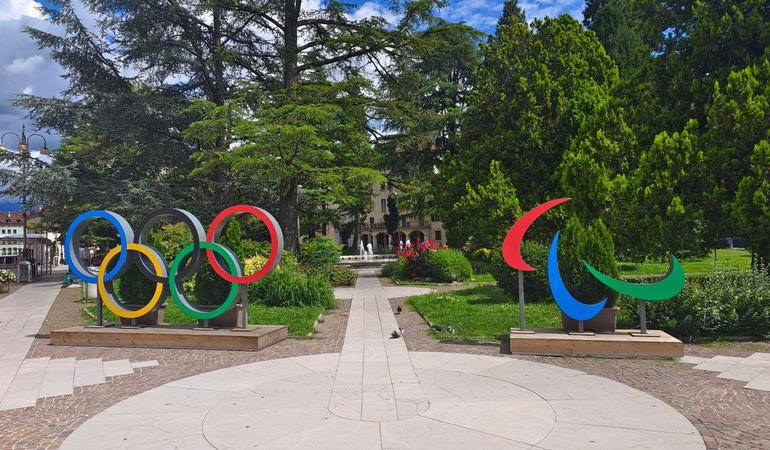
Milano-Cortina. Ecco come verranno spesi i 450 milioni di euro delle paralimpiadi

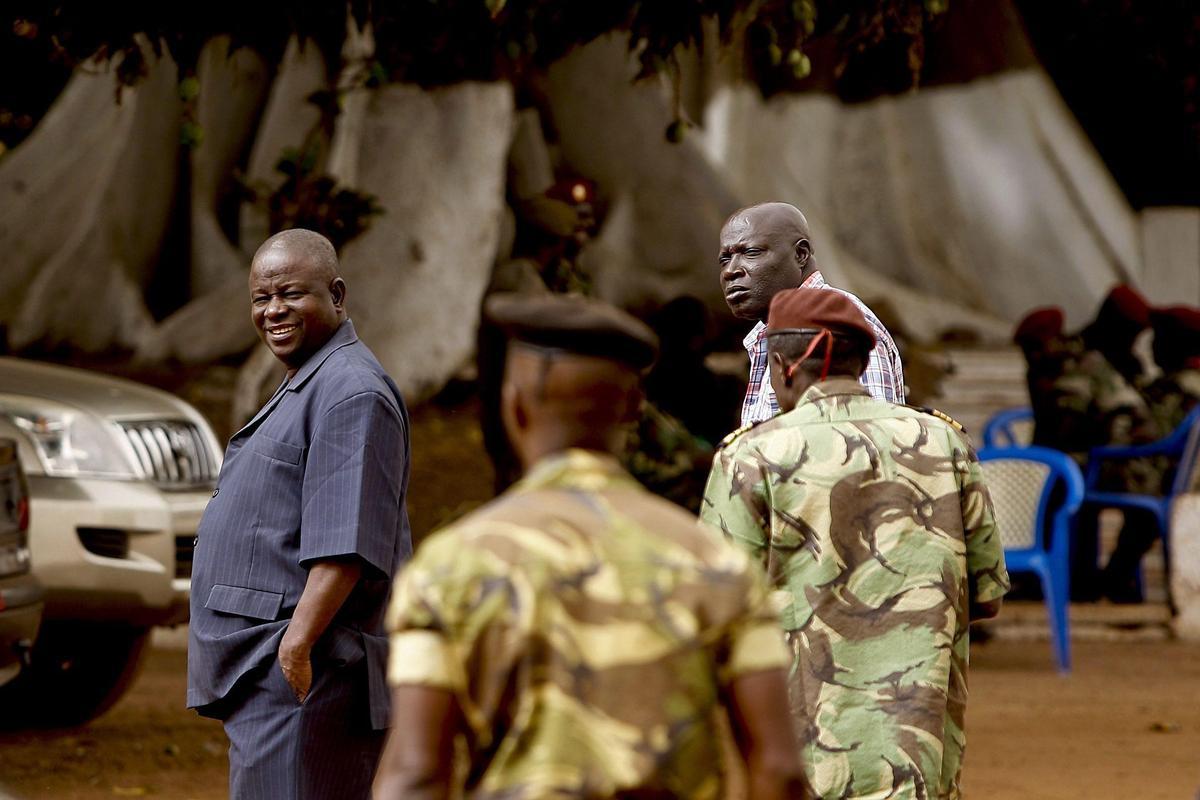
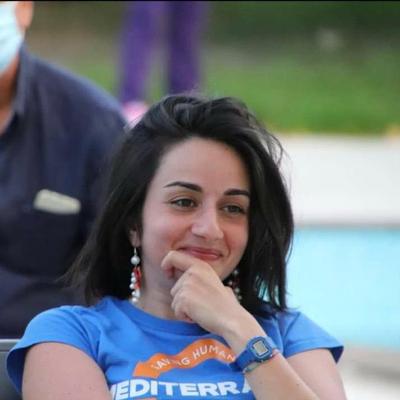
26 gennaio 2024
After a setback, the international criminal organizations that had made Guinea-Bissau famous as a hub for international drug trafficking are reorganizing, reshaping the way they operate. A reorganization that, according to lavialibera investigative sources, once again, as in the past, sees the "involvement of figures at the top of the institutions."
All our articles on drug trafficking
While the country's current president, Umaro Sissoco Embaló, who in early December dissolved parliament for the second time since coming to power in 2020, seems to have other priorities.
According to lavialibera's investigative sources, drug traffickers in Guinea-Bissau are reorganizing by relying once again, as in the past, on figures at the top of the country's institutions
Also originally from Guinea-Bissau is the diplomat Claudio Franco Cardamone, who is considered Germany's point man for the Abbruzzese-Forestefano 'ndrangheta cosca from Sibaritide, meets in Frankfurt on Nov. 27, 2021. Not just anyone, but Malam Bacai Sanhá junior: the son of the country's former president Malam Bacai Sanhá who, before moving to Senegal, held important positions in Guinean institutions.
The Italian antimafia association Libera sheds light on crime in ports
That day Sanhá arrives by train from Paris, Cardamone waits for him outside the station, and on the car ride that will take them to the business lunch they immediately understand each other. They talk about diamonds and oil, but for investigators from the Catanzaro prosecutor's office, the meeting's main dish is something else: getting cocaine from South America to Europe via Africa, or Spain, with a stopover in Portugal. "Maybe we can get something done before Christmas," Cardamone baits the hook. "That would be really good," Sanhá retorts.
The two were supposed to meet again on Dec. 27 to work out the details of the deal, but Sanhá is stopped by German judicial police. It goes no further than that what documented by Operation Gentleman 2, conducted in 2023 by the District Anti-Mafia and Anti-Terrorism Directorate (Ddaa) of Catanzaro and the Guardia di Finanza. Sanhá is not under investigation in Italy but, according to an investigation by the Frankfurter Allgemeine Zeitung newspaper and broadcaster Mitteldeutscher Rundfunk, he was arrested in Tanzania in 2022 and is now on trial for drug trafficking in the United States.
According to the investigation, Bacai Sanhá junior also allegedly bragged to an undercover U.S. agent that he had played a role in what President Embaló called "an attempted coup linked to drug control," which in 2022 resulted in the assassination of several members of the security forces, but the dynamics of which have not yet been clarified.
The meeting, reportedly attended by another Guinean national residing in Luxembourg, however, remains. And it is significant of how West African countries are used as a hub for international drug trafficking also thanks to the relationships that criminal organizations manage to weave with politicians, the military, and the top echelons of local institutions.
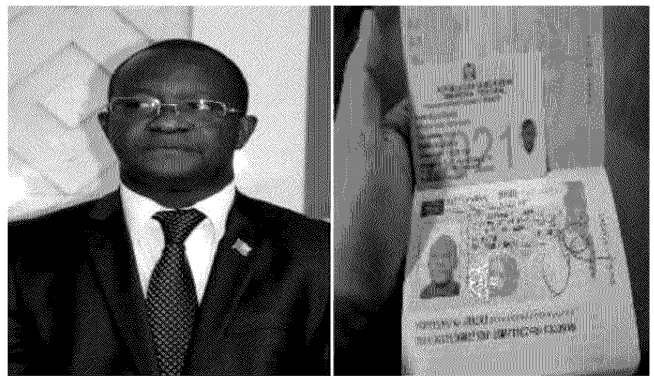
Angela Me, head of the research and analysis branch of the United Nations Office on Drug Control and Crime Prevention (Unodc), explains to lavialibera that "West Africa began to be a transit site for international drug trafficking in the early 2000s. Then, while not ceasing to exist, the route gradually lost centrality. That is, at least, until recent years, when it returned to prominence, as suggested by the record seizures made between 2019 and early 2021."
Since 2020, reports from the Anti-Mafia Investigative Directorate (Dia) indicate that West Africa, particularly the Ivory Coast, Guinea-Bissau, and Ghana, are "an increasingly important logistical hub for drug trafficking."
Guinea-Bissau in particular is to be watched. Considered the epicenter of trafficking in its early days, according to the latest UN report on the subject released last March, this small state still has great potential for cocaine transit. Drugs that mostly arrive here by sea, then move inland to Mali and Mauritania via the neighboring countries of Senegal and Guinea Conakry.
There were two large cocaine shipments seized in Guinea-Bissau in 2019, and-in both cases-they had entered the country via the Bijagós, an archipelago of 88 islands. One of them was linked to a Malian who, according to the U.N. Security Council, was using the proceeds of drug trafficking to finance the Al-Mourabitoun terrorist group, which is affiliated with Al-Qaeda. In 2021, however, two tons of cocaine bound for Guinea-Bissau were discovered by Senegalese authorities.
"Investigations into many cocaine seizures in the Gulf of Guinea indicate that Guinean waters continue to be a main transshipment point for drugs, which move from large to small boats and then land on the coast," Lucia Bird, director of the West Africa Observatory of the nonprofit organization Global initiative against transnational organized crime, tells lavialibera, adding that "interests in the cocaine market continue to forge alliances within Guinea-Bissau's politico-military elite and fuel political instability."
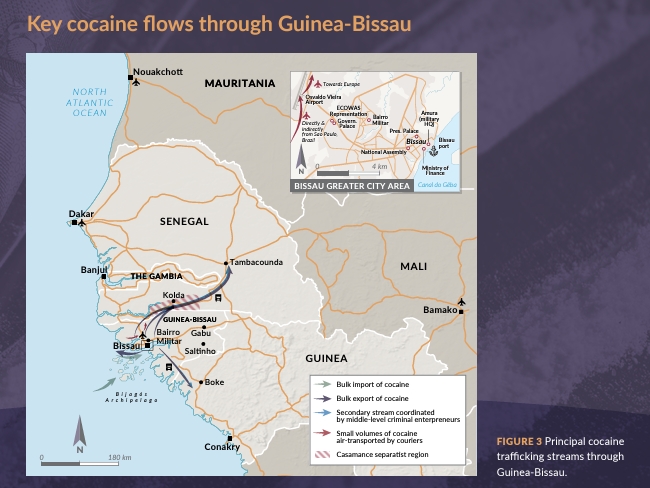
Bird, who has conducted much research on West Africa's role in international narco-trafficking, analyzed the evolution of cocaine flow in the former Portuguese colony in the report Cocaine politics in West Africa, documenting how its history has become intertwined with the fortunes of the highest institutional offices.
"Interests in the cocaine market continue to forge alliances within Guinea-Bissau's political-military elite and fuel political instability," says Lucia Bird, director of the West Africa Observatory of the nonprofit organization Global initiative against transnational organized crime.
"The cocaine market can be seen as the glue that holds together a complex constellation of power alliances," the report says. Military and political figures make up the elite that protects the flow of drugs through the country, ensuring that the risk of shipments being intercepted by authorities remains acceptable, A protection network that, Bird says, makes Guinea-Bissau "not just a transit point but an important storage and redistribution center in the flow of drug trafficking." While criminal entrepreneurs, often Guineans with dual citizenship in another country, handle the logistics.
The recent history of Guinea-Bissau, one of the world's poorest countries, is marked by chronic political instability: since it gained independence from Portugal, declared in 1973 and achieved in 1974, there have been 17 proven, attempted or successful coups. The ability of drug trafficking to affect the country's political instability was first evident in 1998, during an 11-month civil war. But it reached its previous peak in 2007, under the presidency of João Bernardo Viera.
These were the boom years when, according to the account of one of our sources in the country, a boy found bags of cocaine on the beach and, mistaking it for chalk, used it to mark out a soccer field. A tense phase followed, which in 2009 led first to the assassination of Batista armed forces chief Tagme Na Waie, and then President Viera himself.
In 2012, taking power through a coup d'état is General Antonio Indjai, who retired to private life on his cashew plantation in 2014 after an operation by the U.S. Federal Drug Enforcement Agency (DEA) undermined his power. In 2021, the U.S. State Department announced up to a $5 million reward for information helpful in his arrest, describing him as leading a criminal organization that participated in drug trafficking in Guinea-Bissau, and as "one of the most powerful destabilizing figures" in the country, operating throughout West Africa "to corrupt and destabilize governments and undermine the rule of law by exploiting the money made from ill-gotten gains."
Between 2013 and 2019, the system of protection around cocaine trafficking would change, and the monopoly of military control weakened in favor of a more intricate network combining state and civilian actors. Until today.
A convention against transnational organized crime
According to the reconstructed dossier of the Global initiative against transnational organized crime, in February 2020, when President Umaro Sissoco Embaló came to power following an army-backed electoral victory, alongside the new administration "a number of figures from Guinea-Bissau's political-military establishment linked to drug trafficking returned to prominence," including names on the UN, U.S. and EU sanctions list. A Pulitzer Center-supported investigation found that in a photo taken on Feb. 29, 2020, two days after he was proclaimed president, Embaló appears next to some of these people, including Indjai.
Also significant are a gradual centralization of power in his hands and an increased influence of politics on the judicial apparatus. In lavialibera, investigative sources speak of a complicated environment, where there is a lack of investment in the judicial police, which has few men and few means to guard the territory, let alone the territorial waters.
There is also a justice problem. Our sources confirm that in the country, "corruption in the judicial system is one of the biggest obstacles in the fight against international drug trafficking." There have been people arrested with large quantities of drugs who later, although convicted, were released or had their sentences reduced. An example is what happened during the seizure of five kilograms of cocaine in October 2021, which led to the arrest of six people, including a military officer near Indjai. Of these six people, only two were sentenced to minor suspended sentences on charges that were downgraded from those brought by the judicial police. While the others, including the officer, were acquitted. Not only that. All those convicted in the Navara operation conducted by the Judiciary Police in 2019 were released following a scandal and the suspension of the convicting judge by Guinea-Bissau's Supreme Judicial Council.
Certainly, the change at the top of power in 2020, Bird concludes, is characterized by a concrete reduced focus on the issue of cocaine trafficking.
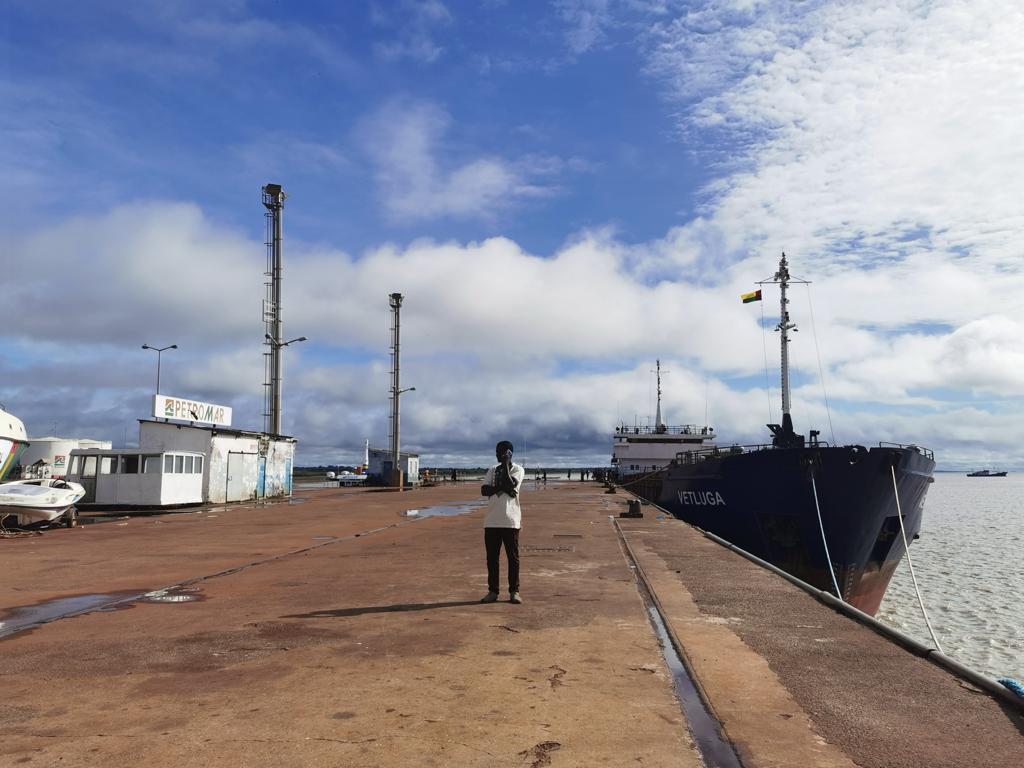
The role of Guinea-Bissau, and West Africa more generally, in the flow of cocaine from South America to Europe should be framed in a context of major changes in the international narco-trafficking landscape, Angela Me points out to lavialibera. The fragmentation of the criminal network in Colombia and a parallel rise on the scene of the Primeiro Comando da Capital (Pcc), a Brazilian criminal group founded 30 years ago by convicts and now the most powerful in the country (with, according to the Economist, more than 40,000 affiliates), have led to an increase in cocaine shipments leaving Brazil, which find in the Gulf of Guinea the geographically closest landing place but "also a similar social-cultural and linguistic context," Me points out.
"The 'ndrangheta no longer has a monopoly in the trafficking of cocaine in Europe, where groups from the Balkans, particularly the Albanians, have greater weight"Angela Me - Onu
Criminal balances have also been transformed: "The 'ndrangheta no longer has a monopoly in the trafficking of cocaine in Europe, where groups from the Balkans, particularly the Albanians, have greater weight".
"There is no longer one hegemonic group that controls the entire production chain, but many dynamic groups that have an increasing specialization," Me continues. "Everything is managed as if it were a business: there are those who are in charge of production, those who are in charge of transportation and those who are in charge of distribution". A competitive market that, UN documents, has a threefold consequence: the price of cocaine sold in Europe decreases, while the quantity and quality of the product increases.
Edited by Rosita Rijtano
La tua donazione ci servirà a mantenere il sito accessibile a tutti
La tua donazione ci servirà a mantenere il sito accessibile a tutti